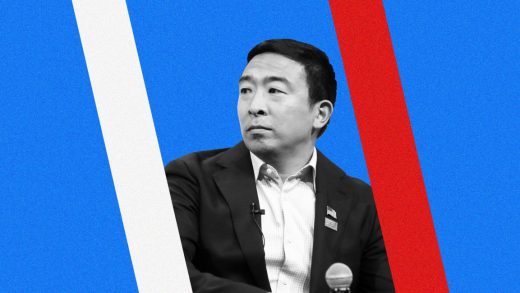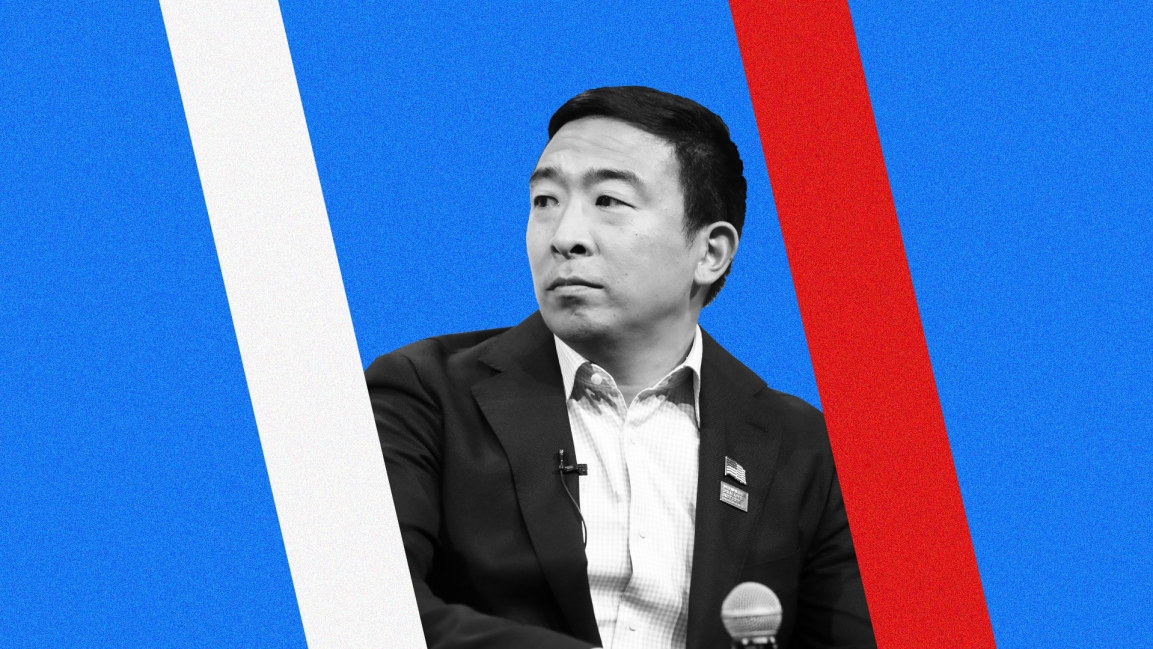Why Andrew Yang’s UBI solution to the cost of child care is not as good as it sounds
In the last 20 years of presidential debates there have been more than 4,000 questions. But only four have been about paid leave, and a mere two have been about childcare. This is according to Time’s Up CEO Tina Tchen from her organization’s own analysis.
That changed tonight when the first all-woman panel of debate moderators asked the Democratic candidates about both paid family leave and childcare. Most, if not all, of the candidates onstage, support paid family leave (a stance that is nearly universally popular with Americans. (Over 80% believe there should be some form of paid family leave, according to Pew.)
So when the question was first directed at Andrew Yang, it was no surprise that he supported the idea of paid family leave (although he misstepped when he implied it should only be for “new moms”). It was also no surprise that his solution to the cost of childcare was his plan for a $1,000-a-month universal basic income, or UBI. After all, his UBI plan has been part of his solution to nearly every issue he’s been asked about (including, curiously, the gender pay gap).
The cost of childcare in the U.S. is cripplingly high, to the point that it exceeds the cost of college in many states. While an extra $1,000 a month would certainly help families ($2,ooo a month for two-parent homes), it’s far from a solution. In some places in the U.S., the average cost of childcare for an infant is around $1,230 a month, but in places with a higher cost of living, like New York City and Washington, D.C., childcare for one kid can average closer to $2,000 a month.
So, yes, $1,000 a month would help defray that cost, but for millions of families who are middle or working class (and/or who have more than one kid under 5 years old), $1,000 a month isn’t going to cut it. For those families, a quarter of whom are going into debt to pay for childcare, or for those who pay more for childcare than rent, the real solution to the cost of childcare isn’t a $1,000 bump in their income. It’s universal childcare.
Perhaps the most problematic but easily overlooked statement that Yang made about his UBI solution to the cost of childcare was his suggestion that a parent could take that money and quit their job to stay at home with their child instead. First, $1,000 a month equals little over $6 hour for a 40 hour workweek, and therefore wouldn’t replace even a minimum-wage worker’s full-time salary.
Second, because childcare falls overwhelmingly on women and because women make on average around 20% to 30% less than men, the likelihood that if one parent would quit their job to stay at home with the kids, it would be a mother. Leaving the workforce for even one year impacts a person’s retirement assets and earning potential to the tune of hundreds of thousands of dollars over a their working life (the Center for American Progress has a calculator for exactly how many earnings a person will lose depending on their age and salary).
So $1,000 a month might soften the staggering cost of childcare, but it certainly wouldn’t solve it for most working parents, and using UBI to encourage (likely women) to quit their jobs would exacerbate the gender pay gap.
(25)



